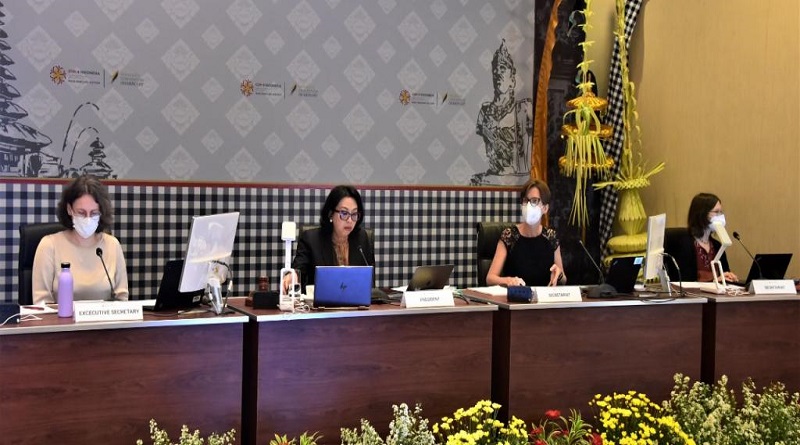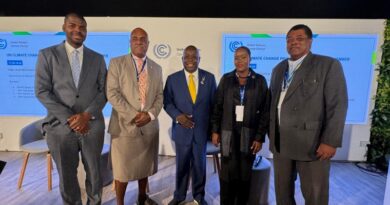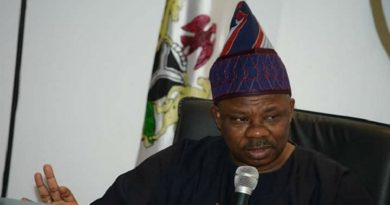Minamata Convention: Parties reinforce commitment to stop mercury pollution at COP4.1
The first segment of the fourth meeting of the Conference of the Parties to the Minamata Convention on Mercury (COP-4) concludes after an intense week of work with important agreements on the programme of work and budget for the coming year and announces dates for in-person segment in Bali, Indonesia.
More than a thousand participants from governments and different organizations attended the online segment of COP-4 during the first week of November to negotiate the progress of the Minamata Convention on Mercury. The virtually assembled delegates approved the programme of work and budget for the coming year and decided to resume the meeting from 21-25 March 2022 in Bali, Indonesia, in a face-to-face format with the aim of promoting inclusiveness for a smooth negotiation process. Given the positive results and lessons learnt from this first fully digital session of the Convention, the plan calls for taking advantage of the benefits of the digital realm to facilitate remote monitoring of the meeting in order to broaden the scope of the sessions.
A Secretariat delegation traveled to Jakarta to support the Indonesian Presidency, including the Convention’s Executive Secretary Monika Stankiewicz. In her closing remarks, she congratulated the work and support behind a Conference of the Parties that “delivered on all expected outcomes and beyond, despite the online setting for the meeting”. Stankiewicz underlined that there is “an additional outcome of this meeting that cannot be found in any document from this session. It is the spirit of cooperation and dedication to the goal of the convention to reduce emissions and releases of mercury to protect human health and the environment shown by you, the Parties, and by all the observers whose ongoing collaboration has been vital to our endeavors”.
COP-4 President Rosa Vivien Ratnawati welcomed the adoption of the dates for the second segment of the Conference, which will be held as an in-person meeting in her home country, Indonesia. She emphasized that “COP-4.2 is just less than five months from now. Let’s work together and prepare ourselves for that meeting. It must be successful in developing frameworks for strengthening and implementing our Convention. It should not fail. I hope our close cooperation as family and friends could continue in COP-4.2 and beyond”.
The programme of work and budget approved by COP-4 for 2022 covers all its activity lines, including conferences and meetings, capacity building and technical assistance, scientific and technical activities, knowledge management and communication, legal matters, and overall management of the Secretariat.
Parties stressed the importance of effectiveness evaluation to the Convention as a crucial element in meeting the main objective of protecting human health and the environment from toxic mercury. A review of how effective the Convention is in eradicating anthropogenic mercury emissions and releases is mandated to begin in 2023. Therefore, delegates highlighted that this essential, urgent issue requires a robust framework based on scientific evidence and data transparency. Discussions on this issue will continue intensively in the intersessional period in order to be consolidated in the next segment of the COP.
Another milestone for parties to take on is the first full cycle of national reports on the implementation of the Convention, which are due for submission by 31 December 2021. The meeting applauded the extensive rating response received from the first short reporting cycle in 2019, with 89% compliance and the draft guidance prepared by the Secretariat to support parties in the preparation of the reports, which is expected to be adopted during the COP-4 face-to-face session. The responses obtained will be a fundamental input for the effectiveness evaluation. Parties are already using the online reporting platform developed by the Secretariat, which has been accompanied by several virtual sessions to provide clarity and facilitate the preparation of the reports.
The COP-4 agenda also referred to the eighth replenishment of the Global Environment Facility (GEF), which will conclude early next year. Delegates unanimously supported the GEF’s key role as one of the financial mechanisms of the Minamata Convention and its direct contribution to capacity building for treaty implementation in developing countries and countries with economies in transition.
At the last plenary meeting of this online segment, the GEF CEO and Chairperson Carlos Manuel Rodriguez shared words of support with the delegates, stating at one of the Conference’s side events that “the impact of chemicals in nature, in biodiversity and climate change, is extremely high, so this is a good moment for all of us to really work in more integrated ways and manners. So, I look forward to continue supporting the Minamata Convention and the Parties: we need to, once more, be able to really focus on those areas that can give us leverage in terms of scale”
The government of Indonesia, as the host country, invited parties to contribute to the draft proposal for the elimination of illegal mercury trade worldwide. Under the name of Bali Declaration, this non-binding document will be released at the next segment of the COP.
After a week of intense work, the outcome of the meeting was very positive, considering the challenges of the virtual format. As a result of months of preparation and coordination, the Secretariat contemplated an interconnected digital ecosystem to facilitate the parties’ access, guaranteeing their security and the efficient management of the online meeting. This digital ecosystem was possible thanks to the synergies established with other multilateral agreements such as the Basel, Rotterdam and Stockholm Conventions, the Biodiversity Convention, and the Ozone Secretariat.
Several side events complemented the working hours throughout the week, covering various topics on specific issues and regional scopes, such as the shared journey of the UN Environment Programme (UNEP) and Minamata, the details of the financial mechanism, the implementation of the convention in the Caribbean, mercury monitoring in Canada and its indigenous populations, and support for effectiveness evaluation, among others — including an art break for a conversation with the director and lead actress of the film “Minamata”. These side events provided an opportunity to exchange information and bring advances in technology, research, and materials of relevance to the attention of parties and the global community that the convention serves.
In less than five months, the Conference of the Parties will meet again, this time in person, to continue the negotiation process by strengthening commitments to build a future free from the toxic effects of mercury. Speaking to the participants at Friday’s plenary meeting, Executive Secretary Monika Stankiewicz stated: “You have eagerly demonstrated this collaborative spirit and unwavering commitment during the negotiation process. You have expressed high ambition for the Convention and clear expectations for the way forward during the negotiations. Let’s carry this out with us to the second segment of the COP in Bali, Indonesia to make mercury history”.




